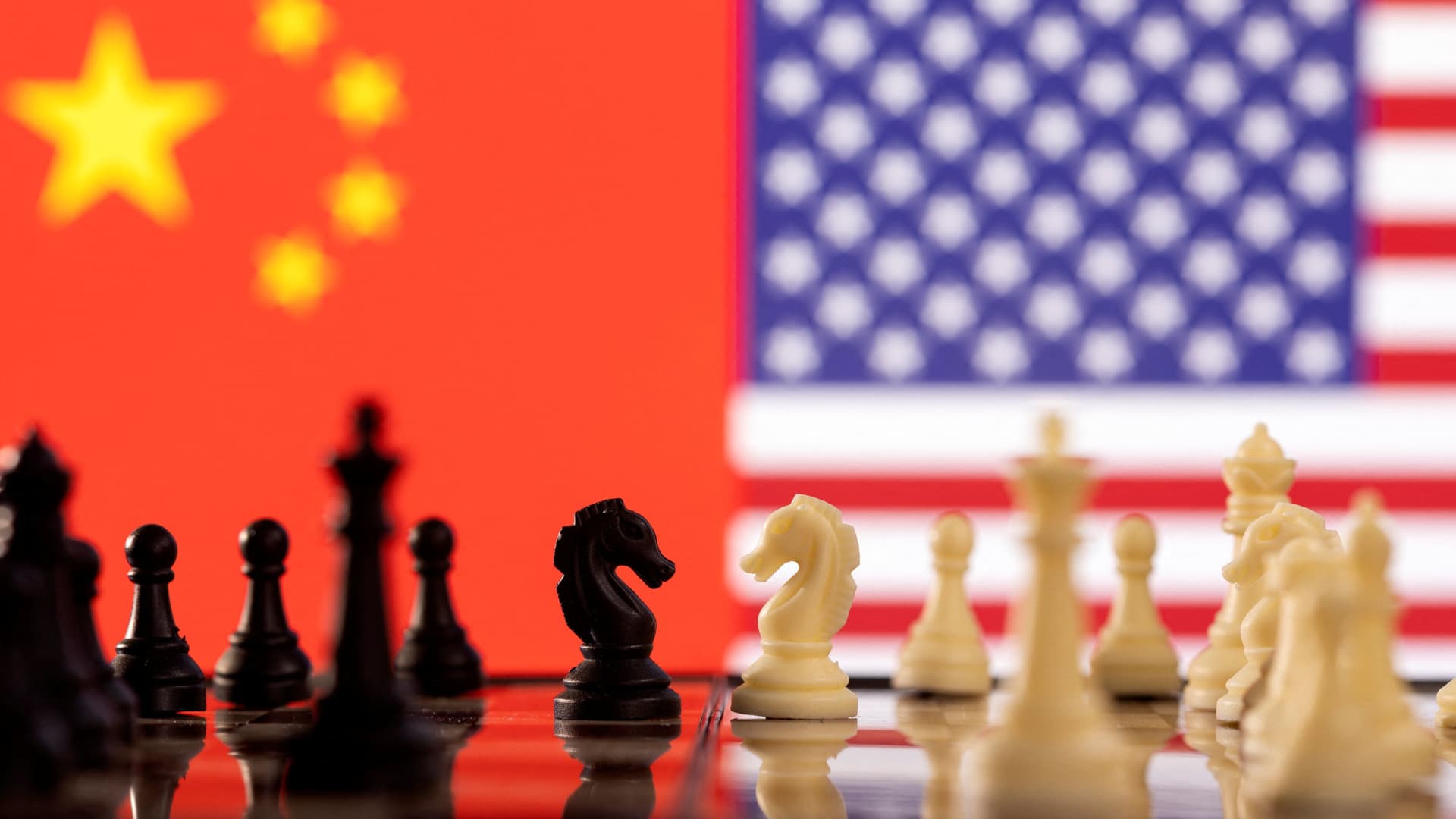
BEIJING — While Chinese state media have tacked away from primarily pro-Russian coverage of the war in Ukraine, one of the consistent messages remains: Blame the U.S.
Chinese President Xi Jinping and U.S. President Joe Biden are scheduled to speak Friday evening Beijing time about bilateral relations and “issues of common concern,” Chinese state media announced late Thursday.
The call would mark the first official contact between the U.S. and Chinese presidents since Russia invaded Ukraine in late February.
Much of Chinese state media coverage since has focused on negotiations between Russia and Ukraine, without describing the conflict as an invasion or war. China’s foreign ministry has refused to call Russia’s attack on Ukraine an invasion, while blaming the U.S. for “fueling” the tensions.
That criticism has persisted.
People’s Daily, the Chinese Communist Party’s official newspaper, put a headline about the upcoming Xi-Biden call in a prominent, bolded spot on the right side of its website’s front page on Friday.
Several lines below it was a piece from the editorial board: “Sticking to ‘double standards’ will only bankrupt U.S. credibility,” the headline said, according to a CNBC translation of the Chinese text.
In a nightly news show Thursday, China’s state television broadcaster noted the U.S. plans to send $800 million in military aid to Ukraine, and included clips of Putin blaming Western nations for global inflation.
The show closed by citing unnamed analysts warning that the U.S. Federal Reserve’s decision to raise interest rates in a period of high inflation and uncertainty only adds to the risk of global debt default.
As is the case with most Chinese state media, the half-hour news broadcast focused mostly on domestic affairs, including China’s own ability to control the recent Covid-19 outbreak.
State media announcements on the Xi-Biden call did not specifically mention Ukraine, while the White House announcement included it as a planned topic of discussion.
Readouts of contact between high-level U.S. and Chinese officials have tended to separate U.S.-China relations from the two countries’ discussion of the Russia-Ukraine conflict. Chinese Foreign Minister Wang Yi emphasized last week how China’s relationship with Russia was as solid as when Xi and Russian President Vladimir Putin met and issued a joint statement in early February.
More discussion of humanitarian crisis
Beijing has tried to portray itself as maintaining a relationship with Russia while working with European countries and other nations to broker peace, especially in the face of increased sanctions on Russia by the U.S., EU and other countries.
“Beijing’s support for Moscow is mostly rhetorical,” consulting firm Teneo said in a report released March 10.
On Friday, Gabriel Wildau, senior vice president at Teneo, noted a change in that rhetoric. “In the last few days there are signs of a shift in state media coverage, which may reflect Beijing’s attempt to distance itself from Moscow.”
He pointed to how China’s English-language state television broadcaster has highlighted civilian casualties from Russian attacks, and the Chinese-language one has reported the Ukrainian military’s battlefield successes.
That reflects further detail than Chinese official media have offered in the past on the humanitarian crisis in Ukraine. As of Wednesday, at least 780 civilians have been killed — including 58 children — since Russia’s attack began on Feb. 24, according to United Nations data.
Last week Beijing announced a “six-point initiative” for preventing a large-scale humanitarian crisis in Ukraine, and Premier Li Keqiang said China is “deeply concerned” about the situation in Ukraine.
Chinese media’s slight shift away from primarily Moscow messaging has also targeted a U.S. audience.
In an op-ed published in the Washington Post on Wednesday in English, Qin Gang, China’s ambassador to the U.S. said “assertions that China knew about, acquiesced to or tacitly supported this war are purely disinformation.”
Most prominently, The New York Times early on March 3 Beijing time cited U.S. and European officials as saying senior Chinese officials told their Russian counterparts in early February not to invade Ukraine before the end of the Winter Olympics in Beijing that month.
Qin said Wednesday there were more than 6,000 Chinese citizens in Ukraine.
“Conflict between Russia and Ukraine does no good for China,” he said. “Had China known about the imminent crisis, we would have tried our best to prevent it.”
Macquarie and Morgan Stanley analysts cited the op-ed as a contributing factor to Wednesday’s rally in Hong Kong and mainland Chinese stocks.




